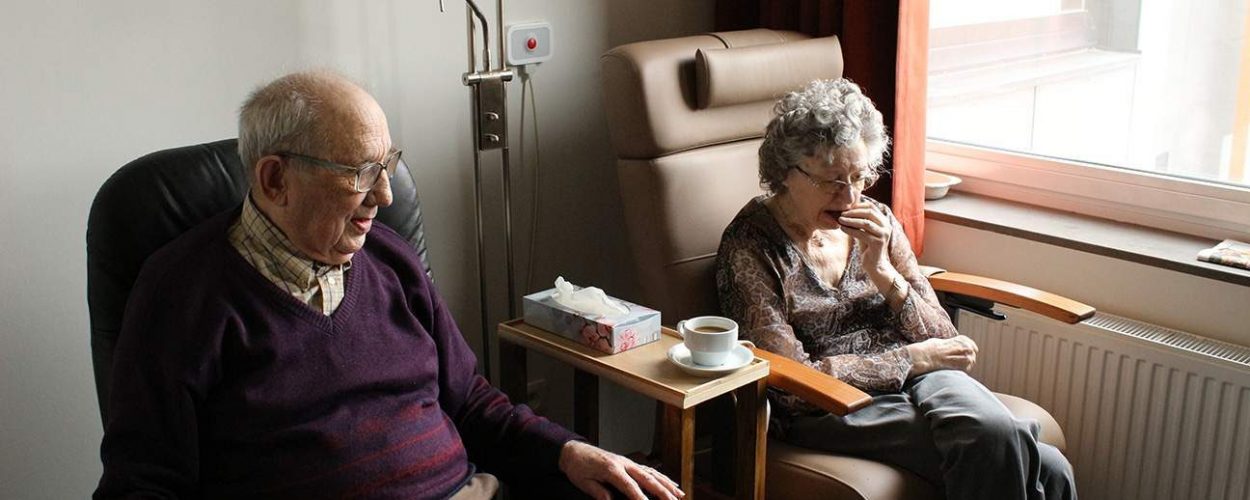It is quite clear that our population is an ageing one. Survival rates are increasing and people are living longer due to a variety of different factors. This means that there is also a growing number of older carers. It is important that, as a community, we support and uplift those taking care of a loved one in later life.
Figures have revealed that carers 65 and over provide around 54 million hours of unpaid care work in England. The underfunded social care system forces many people to look to their family to provide the care they need. Many older carers are supporting their partners, but this can sometimes be detrimental to their own health. About 28% of informal older carers have expressed feelings of loneliness.
Making the Decision to Become a Carer
It can be a hard reality to face when you know a loved one needs a carer in any capacity. However, going the step further and deciding to administer that care yourself is an example of great love and kindness. CarersUK has a comprehensive guide for those who don't know how to become a carer.
You need to consider a variety of things before coming to this decision. Being an older carer comes with its very own set of problems, such as financial, social, and wellbeing strains. If you are caring for a loved one, this often means that your work does not stop with the feeding and washing. It also means taking care of official documents and making phone calls on their behalf. Don't forget that even if you want to be a carer to your loved one, they may need and be entitled to more than one carer. This allows you to take a break when you need to, and spend quality time with the person you are caring for.
Being a carer is a rewarding job but should never come at the expense of your own health and wellbeing. There is also nothing to be ashamed of if you decide you do not want to be their carer. Whatever decision is best for you will probably also be best for your loved one. They deserve the best level of care they can receive, just as you deserve to make a decision without guilt.
Things Older Carers Need to Know About:
- Your local authority is there to help. You can request a carer's assessment from your local council so they can provide whatever support you may need.
- Caring for a loved one can take both an emotional and financial toll. If you are providing at least 35 hours of care per week, you are entitled to Carer's Allowance.
- Similarly, if your loved one is receiving additional care, they may be entitled to Attendance Allowance. This can help with financial strain at home.
- There may also be other benefits you or your loved one can receive.
- Respite care allows you to take a break from caring for a temporary period of time. It is important to make time for yourself. The positive effects of a well-deserved break are likely to improve your ability to care for your loved one.
When Am I No Longer Needed?
There are a variety of reasons why your time as a carer may end. The nature of their illness may change, as it often does over time. With older carers, it is often the case that at some point, the person you are caring for needs more help than you can offer. It is important to recognise when you can no longer provide what they need. This is the time to start looking into other options. A deterioration in the patient's health can actually mean they are entitled to access more services. This can mean that you receive more support at home than you may have received before. There are many organisations that offer impartial advice to carers.
Help for Carers – Careline Alarms
Being a carer to a loved one comes with its own diverse challenges. Many carers worry about leaving the house to run basic errands such as the food shop. The Careline alarm means carers are able to leave the house and know that their loved one will get help if they need it. What's more, our prices also offer VAT exemption for those with long term health conditions. If you would like to know more about purchasing a Careline alarm and how the alarm system works, please call our friendly team on 0800 030 8777.
Editor's Note: This article was updated on 28th May 2024 to reflect current information.
Choose Your Personal Alarm
To help you choose, start by selecting where you would use your personal alarm. In home only or at home and on the go.













Leave a Reply